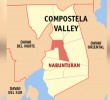By Kristine A. Valerio
In the midst of war and crisis, the victims knock on our hearts which themselves have been conditioned to be inured to the violent, oppressive, and inhumane world we live in. Our hands, which have been schooled to operate according to our employers’ orders – to work eight hours a day, to abide by the dehumanizing structure – rest for a while, and function for/with our fellow human beings. So, we get involved. We join the relief operations for the Marawi crisis.
Our sincerest intention, in realizing our generous capability in helping other people is a good deed. Christians, Muslims, Filipinos, Americans, civilians, rebels—everyone is taught to do good to others. To be able to work or even live for others is a phenomenon, coming from the “natural” response of humankind when they see things going beyond its “normal” state. However, when we contemplate on our actions, sometimes, even if those that are drawn from what we believe are good intentions, create a harmful impact.
Before the Marawi crisis interrupted our daily routine, there was already an existing social order which was violent in its core. It included a widening gap between the rich and poor; allowed government forces to kill civilians; and had women marginalized and oppressed by prevailing gender roles ascribed by society. When the daily routine “changed” – when we heard about the aerial bombings and the fleeing of civilians — we responded.
When former DSWD Secretary Dinky Soliman was in Iligan last June 15, I was also there (with a different group) along with other volunteers. We talked with the bakwit, particularly the women. They spoke about their observations of the May 23 attack, their disagreement with Martial Law, their struggles as they fled. A 22 year-old woman shared that as of May 25, their village has not been attacked yet. But she took off when a soldier told her in Filipino, “If you will not be good, I will rape you.” A mother told her three daughters to escape ahead of her and her husband as soon as they heard about the rape “joke” of the President.
They talked about their immediate needs, such as kitchen materials and water; pregnant and lactating mothers are in need of reproductive health services. They also wanted to stop the aerial bombardment of their places and return to their homes and livelihood.
In the evacuation centers (EC), there are women and children who until now cannot speak, having been traumatized by the ongoing war. Mothers have been separated from their children. In one of our visits to the EC, we saw a child, sitting in a corner, crying. When a colleague asked him what the matter was, he answered: “I don’t know if my brothers are still coming back or are alive.”
Did the evacuees ask for lipstick? As this was what the former secretary’s donation drive sought to contribute.
A Maranao woman friend of mine reacted over the news on lipstick donations for the evacuees: “In times of war, our narratives become everyday data: number of casualties, number of bakwit, number of hungry. We want humanized kinds of stories, but not like this. We don’t deserve a story about diluted suffering.”
Beyond the issue of lipstick donations, a critical inquiry on “for whom and for what” our efforts are would always be a sensible question for donors and volunteers. Are we extending support to alleviate the suffering of our fellow human beings, or do our efforts only reinforce the existing social order that oppresses the majority, including and especially women?
Women, who are deemed weak and domesticated, are treated as cheap or unpaid laborers as their work remains invisible in the productive domain.
They are also often regarded as mere objects of desire. Women experience further marginalization in a conflict setting. Are we assessing their current condition alongwith their experiences from the past? During the Zamboanga siege, sexual and gender-based violence increased in its many forms: sexual harassment in congested ECs, human trafficking and commercial sex in exchange for basic needs. There was a controversial story about displaced and impoverished teenage girls entering the “tira bente” (sex for 20 pesos) in the aftermath of the siege.
In times of crisis, we need helping hands! Let’s give what we can! All these calls are indeed necessary. But support without grounded, context-specific, gender-sensitive measures is useless. While distribution of survival needs is necessary, our solidarity will be more effective if we unendingly listen to and learn from the people’s stories, analyze them, and intervene through tireless education and capacity building.
Hunger, which has been the everyday life of the poor, will intensify if this war on aggression continues. So, let us work together to end this. Internationalist leader Clara Zetkin once asked, “Who benefits from the war?” She continued, “Only a small minority … manufacturers of rifles, cannon, of armor plate and submarines: the owners of docks and suppliers to army. To increase their profits, they fomented hate between the different peoples and so contributed to the outbreak of war.”
As the victims of the Marawi crisis knock on our hearts, let us make that tiny space between sympathy and pursuance of life into an opportunity to challenge the existing violent social order,which has been creating and recreating this kind of war.
About the author
Kristine A. Valerio is a sociologist and women’s rights activist. She used to work in conflict areas such Palestine and South Sudan. She is a member of Gantala Press, Inc.










